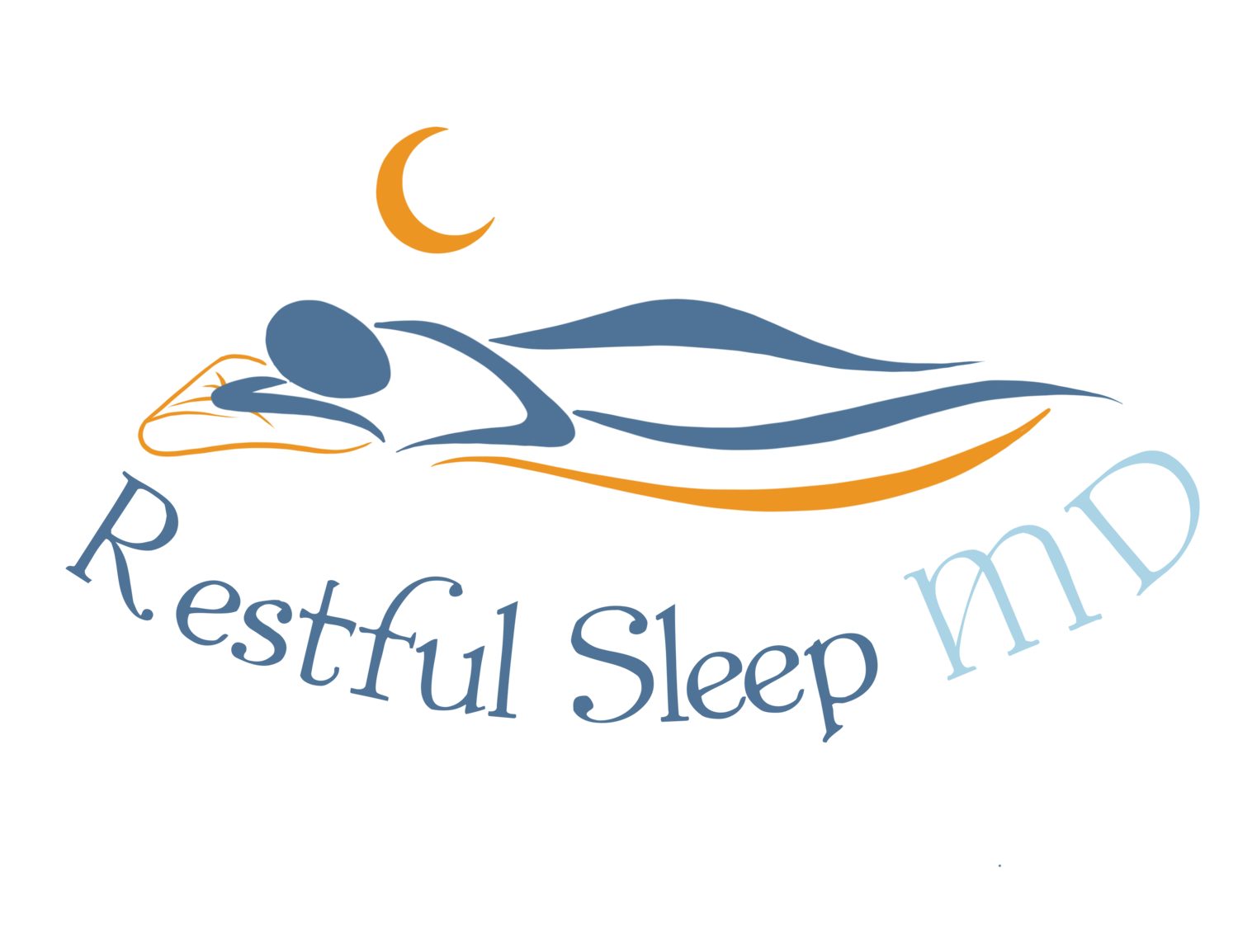How to Treat Menopausal Sleep Issues: A Clinical Guide to Better Rest
Sleep is essential for overall health, yet for many women going through perimenopause and menopause, restorative sleep becomes elusive. If you're in your 40s or 50s and find yourself waking up tired, frustrated, or emotionally depleted despite doing "everything right," you're not alone. Menopausal sleep disturbances are incredibly common but they’re also deeply misunderstood.
This comprehensive guide will demystify the complex relationship between menopause and sleep. It will also explore the reasons why common solutions often fall short and provide real-world, evidence-based options that can restore your sleep and your quality of life.
Understanding the Real Problem
Sleep disruption during menopause is more than just tossing and turning. Many women describe it as feeling "tired but wired," struggling to fall asleep, waking up too early, or sleeping for 7-8 hours but still feeling unrested. This isn’t just an inconvenience it’s a clinical issue with roots in hormonal, environmentl
Let’s break down what’s actually happening.
Hormonal Shifts That Disrupt Sleep
During perimenopause (which can begin as early as the late 30s) and menopause, the body's levels of estrogen and progesterone begin to decreaseThis hormonal shift significantly changes your sleep.
Estrogen helps in regulating body temperature, mood, and the production of serotonin and melatonin which are key players in your sleep-wake cycle.
Progesterone has sedative-like effects, promoting deep, restorative sleep. When levels dip, it becomes harder to reach and maintain deep sleep stages.
When these hormones fluctuate or decrease, it causes sleep fragmentation, making it more difficult for women to fall asleep and stay asleep.
Common Sleep Disturbances in Menopausal Women
Here are patterns frequently reported by patients:
Early Morning Awakenings: Many women wake between 2-4 AM and can't return to sleep, often due to stress, hormone dips, or surges of cortisol.
Non-Restorative Sleep: Even after 7–8 hours of sleep, women report feeling unrefreshed.
Temperature Dysregulation: Hot flashes and night sweats are well-known, but even subtle shifts in body temperature can interrupt sleep.
Stress-Induced Awakenings: Waking up suddenly in the middle of the night with a racing mind or heart is incredibly common.
These aren’t just uncomfortable, they can impact your heart health, cognitive function, emotional stability, and overall quality of life.
Why Generic Advice Often Fails
We’ve all heard it: "Sleep in a cooler room," "Avoid caffeine," or "Take melatonin." While these tips are helpful for general sleep hygiene, they fall short for hormonally driven sleep issues.
Why? Because these recommendations treat the symptoms not the underlying causes. Menopausal sleep disruption isn’t simply a matter of environment or routine. It’s physiological and needs a more personalized, multi-layered approach.
To effectively treat menopausal sleep issues, a comprehensive assessment and targeted treatment plan is essential.
1. Hormonal Evaluation
For some women, Hormone Replacement Therapy (HRT) can make a significant difference. HRT may help alleviate night sweats, temperature fluctuations, and sleep disturbances. However, HRT isn’t for everyone. A thorough review of your medical history, symptoms, and goals is needed to determine if it’s the right choice. You don’t necessarily have to be on HRT to address your sleep issues, but it can definitely help if needed!
Additionally, non-hormonal options exist (like SSRIs or natural remedies (such as phytoestrogens) may be considered).
2. Screening for Sleep Disorders
Sleep apnea and restless legs syndrome are often underdiagnosed in menopausal women. These disorders can worsen due to hormonal changes and require specific treatments such as CPAP therapy or iron supplementation.
Women with newly developed or worsening snoring, frequent awakenings, or daytime fatigue should be evaluated for these disorders.
3. Behavioral and Environmental Modifications
You’ve heard of Cognitive Behavioral Therapy for Insomnia (CBT-I) and it works. In fact, it’s the gold standard for treating chronic insomnia. Combined with lifestyle and environmental tweaks tailored to hormonal shifts, it can dramatically improve sleep.
Recommendations may include:
Keeping a consistent sleep schedule
Establishing a longer, calming bedtime routine
Limiting screen time 1–2 hours before bed
Using cooling sheets, mattresses, or fans
Journaling or mindfulness practices to quiet the mind
4. Stress, Anxiety, and Mental Health Support
Menopause can trigger or exacerbate anxiety and depression, two major culprits of sleep disturbance. Addressing mental health through therapy, medication, or mindfulness-based techniques is crucial. Ignoring this piece of the puzzle can significantly hinder progress.
When to Seek Professional Help
It’s time to speak to a sleep specialist if you experience:
Persistent waking at night or early morning
Loud snoring or breathing interruptions
Leg discomfort or restlessness at night
Mood disorders affecting sleep
No response to over-the-counter or lifestyle remedies
Symptoms worsening despite adequate sleep hygiene
What to Expect in a Sleep Evaluation
Our comprehensive sleep assessments include:
A detailed review of your sleep and medical history
Bloodwork evaluation
Screening for sleep disorders
Review of current medications and supplements
Custom sleep optimization plan
If this sounds like you or someone you love, don’t wait. Sleep disruption doesn’t have to be part of "the new normal." There is help, and there are solutions.
Schedule a professional sleep evaluation: Identify root causes and map out a plan.
Track your symptoms: Keep a sleep diary, note your mood, and document your triggers.
Be open to layered treatments: Remember, no single solution works for everyone.
Menopausal sleep issues affect millions of women, yet many suffer in silence. The good news? These issues are treatable. Whether it’s hormone-related, stress-induced, or due to an underlying sleep disorder, you deserve to feel rested and whole.
If sleep has become a nightly battle, reach out. The sooner you act, the sooner you can reclaim your rest and your life.
Let’s get you back to restful sleep.
📍 Visit us at The Restful Sleep Place to learn more about our personalized menopause sleep evaluations.
📞 Call us: (215) 607-8297
📧 Email us: info@therestfulsleepplace.com


